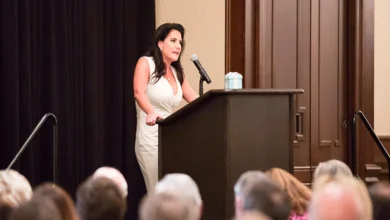In Love or Love: Understanding the Language of Emotions

In Love or Love When it comes to expressing emotions, especially those wrapped in romance, language can sometimes trip us up. One of the most frequently debated phrases in love-speak is the difference between “in love” and “in love.” It might seem like a minor grammatical hiccup to some, but for those who value emotional nuance and proper expression, it’s a distinction worth exploring.
Whether you’re penning a heartfelt letter, crafting a poetic social media post, or simply trying to understand your feelings better, knowing the correct usage and the deeper emotional implications—of these phrases matters. So, let’s break it down in a way that’s casual but backed with a touch of linguistic expertise.
The Difference Between “In Love or Love” and “In Love”
At first glance, “in love” might look like just a trendy shorthand or typo for “in love.” It’s all over social media, after all. People caption their photos with “I’m so in love” or write in their bios “in love with life.” It’s easy to think it’s become acceptable. But the reality is, linguistically speaking, “in love” is not a standard word in the English language.
“In love,” on the other hand, is a recognized prepositional phrase. It’s grammatically correct and widely accepted in both spoken and written English. It accurately describes a state of emotional attachment or romantic involvement with someone. The phrase “in love” has been around for centuries, holding deep cultural, emotional, and even literary significance.
That said, the increasing use of “inlove” points to a broader trend in language: the blending of words to mirror emotional states. Much like “forevermore” or “heartbroken,” “inlove” feels like it wants to be a single, indivisible experience. People use it to convey a kind of intense emotional shorthand, like one quick burst of feeling that can’t be separated by a space.
Why People Say “Inlove”
Let’s face it: grammar rules aren’t always the first thing on our minds when we’re head over heels. When emotions take over, especially on social media, the focus shifts from technical correctness to capturing a feeling in the rawest, quickest way possible.
The phrase “in love” is emotionally loaded. It feels compact and urgent. Typing it without the space somehow seems more passionate, and more permanent. It’s not just about being “in love”—it’s about being consumed by the feeling. That emotional weight is often what people are trying to convey when they opt for “in love” instead of the grammatically correct version.
But make no mistake, while the intention might be heartfelt, it doesn’t change the fact that “in love” is considered incorrect in formal writing. You won’t find it in academic papers, serious articles, or even most novels—unless it’s being used to reflect informal speech or a character’s style.
Language Evolution and Emotional Expression
Language is a living, breathing entity. It evolves with us, responding to how we feel, what we value, and how we communicate in different contexts. Words like “selfie,” “ghosting,” and “stan” weren’t standard once either. Now, they’re part of the everyday lexicon. So it’s not surprising that phrases like “in love” are catching on in casual contexts.
That said, while some slang terms eventually make it into dictionaries, they usually go through a vetting process. They need widespread, consistent use and clear meaning. “Inlove” hasn’t quite made that leap yet, but it’s knocking on the door. Especially in cultures where English is influenced by native languages or is spoken informally online, “inlove” is becoming a go-to emotional shorthand.
Still, as of now, if you want to write something that stands the test of time—whether it’s a romantic poem or a wedding vow—you should probably stick with “in love.”
The Psychology of Being “In Love”
Let’s pivot for a second from linguistics to psychology. Regardless of how you spell it, being “in love” is a powerful emotional experience. It activates the brain’s reward system, flooding your body with dopamine, oxytocin, and other feel-good chemicals. This is why falling in love often feels like a high. It’s intense, euphoric, and can even be addictive.
Being in love isn’t just about butterflies and late-night texts. It’s about vulnerability, trust, and emotional intimacy. It involves cognitive and behavioral shifts. You start prioritizing the other person, thinking about them constantly, and often idealizing them. This stage can make your brain overlook flaws and potential red flags, which are both beautiful and dangerous.
Understanding this helps put the whole “in love” vs. “in love” debate into perspective. People often use “in love” when they’re deep in this intoxicating phase when the rational mind takes a backseat to pure feeling.
How Culture Affects Language Use
The way people use “in love” instead of “in love” also reflects cultural trends. In many parts of the world, English is used in hybrid forms—think Taglish (Tagalog-English), Hinglish (Hindi-English), and others. In these linguistic environments, “in love” is often accepted and understood without judgment.
This doesn’t make it correct in formal English, but it does explain its popularity. These cultural nuances shape not only how we communicate but how we experience emotions. For some, using “inlove” feels more expressive, more honest.
On social platforms, where brevity rules and emotional impact is everything, “inlove” fits the vibe. It’s shorthand not just for the emotion itself, but for the entire experience: the rush, the dreaminess, the giddiness. It’s not just about words it’s about the moment.
Romance in the Digital Age
Social media has reshaped how we talk about love. Hashtags like #inlove, #couplegoals, and #truelove flood Instagram, TikTok, and Twitter. The aesthetic of love has become just as important as the emotion itself. People now curate their romantic lives, presenting them in filtered, storybook fashion.
In this context, “inlove” becomes more than a typo—it becomes part of the narrative. It’s fast, it’s visual, and it fits within character limits. Emojis, abbreviations, and altered spellings rule this space. While traditionalists may frown, it’s hard to ignore the influence this digital evolution has on our language.
That said, knowing when to switch back to “in love” is key. There’s a time and place for everything. A wedding speech? Stick with “in love.” An Instagram post about your weekend date? Go ahead with “in love.” It’s all about understanding your audience.
Emotional Literacy in Relationships
Whether you say you’re “in love” or “in love,” the emotional intelligence behind those words matters most. Being emotionally literate means being able to understand, express, and manage your emotions effectively. It also means recognizing how your words impact others.
Telling someone you’re “in love” with them carries a weight of responsibility. It implies commitment, care, and a certain depth. On the flip side, using “in love” might come across as playful or impulsive. Knowing the distinction can make all the difference in how your message is received.
Relationships thrive on clear communication. If you’re feeling something deep, don’t just say it—explain it. Are you in love because of how the person makes you feel, or because of who they are? Are you just caught up in the excitement, or do you see a future with them? These questions help deepen the conversation.
The Role of Writing in Romantic Expression
Writing has always been a vehicle for expressing love. From Shakespearean sonnets to love letters during wartime, the written word captures what the heart feels. And here, precision matters.
Imagine receiving a letter that says, “I am so in love with you.” It might be sweet, but to a grammar-conscious person, that missing space could distract from the emotion. On the other hand, “I am so in love with you” feels timeless, polished, and sincere.
In creative writing, style choices matter. If a character is impulsive or emotional, they might use “in love” to show personality. But in narrative or poetic prose, “in love” maintains emotional clarity and universal understanding.






